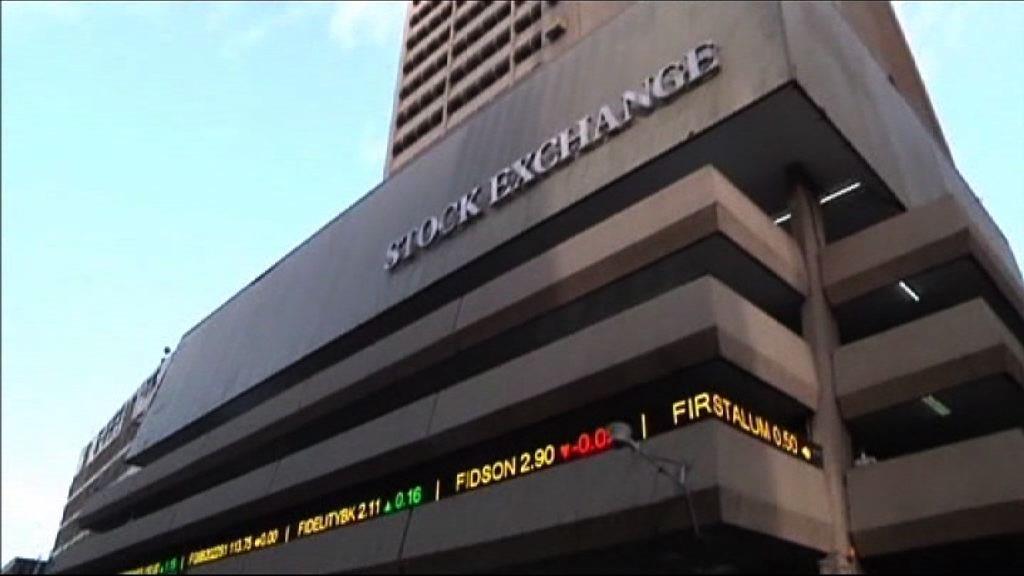By Chioma Obinagwam
Barely few weeks since the implementation of the new Foreign Exchange (Forex) policy by the Central Bank of Nigeria(CBN), the Nigerian capital seem to be losing investors’ patronage to the money market.
This is evident in the decline in the Nigerian Stock Exchange’s(NSE) major indicators- the All-Share index and Market Capitalisation, where they lost 4.39 per cent each week on week(WoW) to settle at 29,305.40 basis points and N10.07 trillion respectively.
This decline, which is coming after two weeks of consecutive gains, is not unconnected to the growing liquidity in the money market.
A money market is a segment of the financial market in which financial instruments with high liquidity and very short maturities are traded as opposed to the capital market where securities such as shares and bonds are issued to raise medium to long-term financing, and where the securities are traded.
Recent reports from Reuters, an international news agency, showed that Nigeria’s interbank overnight rate fell to five per cent on Friday, July 1, 2016 from 15 per cent a week ago, as cash from maturing treasury bills and payments by the government to contractors helped boost liquidity.
According to the report, increased cash flow left the money market with a N267.10 billion surplus balance on Friday, reversing the N300 billion shortfall of a week ago and pushing down the cost of borrowing among commercial lenders.
Although the money market seem to be looking up for investors, there are also concerns around the sustainability of the growing liquidity and its subsequent attractiveness to investors.
ALSO SEE: Nigerian stocks, investors lose N278bn
Meanwhile, the weekly report of the Nigerian bourse also indicated that despite the downturn witnessed by its major indicators, the Alternative Securities Market(ASem) index rose by 1.14 per cent.
More so, equities turnover recorded a decline in the week under review as a total of 1.47 billion shares worth N17.07 billion in 21,246 deals were traded by investors compared to a total of 2.39 billion shares valued at N26.38 billion that exchanged hands last week in 28,072 deals.
The report further showed that the Financial Services Industry measured by volume led the activity chart with 1.17 billion shares valued at N10.24 billion traded in 12,697 deals; thus contributing 79.59 per cent and 60.01 percent to the total equity turnover volume and value respectively.
It added the Conglomerates Industry followed with 133.61 million shares worth N300.89 million in 1,081 deals. The third place was occupied by the Consumer Goods Industry with a turnover of 110.75 million shares worth N4.90 billion in 3,495 deals.
According to the NSE, trading in the shares of Nigeria’s tier one lender, Guaranty Trust Bank Plc, financial HoldCo, FBN Holdings Plc and Nigeria’s top conglomerate, Transnational Corporation of Nigeria Plc measured by volume accounted for 523.55 million shares worth N6.54 billion in 5,223 deals, contributing 35.65 per cent and 38.32 percent to the total equity turnover volume and value respectively.
Also traded during the week were a total of 12,695 units of Exchange Traded Products (ETPs) valued at N174,028.05 executed in 35 deals, compared with a total of 121,501 units valued at N90.716 million transacted last week in 34 deals. The NSE update affirmed.
In terms of Bonds, a total of 2,979 units of Federal Government Bonds valued at N2.91 million were traded in 5 deals compared to a total of 9,439 units of Federal Government Bonds valued at N10.43 million transacted last week in 7 deals.
A summary of price changes in the review week showed that 22 equities gained in price, lower than 40 recorded the past week. On the flipside, 52 equities lost in price, higher than 32 posted the previous week, while 106 equities remained unchanged lower than 108 declared last week, the NSE report said.

 Entertainment6 days ago
Entertainment6 days ago
 Health1 week ago
Health1 week ago
 Health4 days ago
Health4 days ago
 Football1 week ago
Football1 week ago
 Football1 week ago
Football1 week ago
 Crime4 days ago
Crime4 days ago
 Education6 days ago
Education6 days ago
 Crime1 week ago
Crime1 week ago









